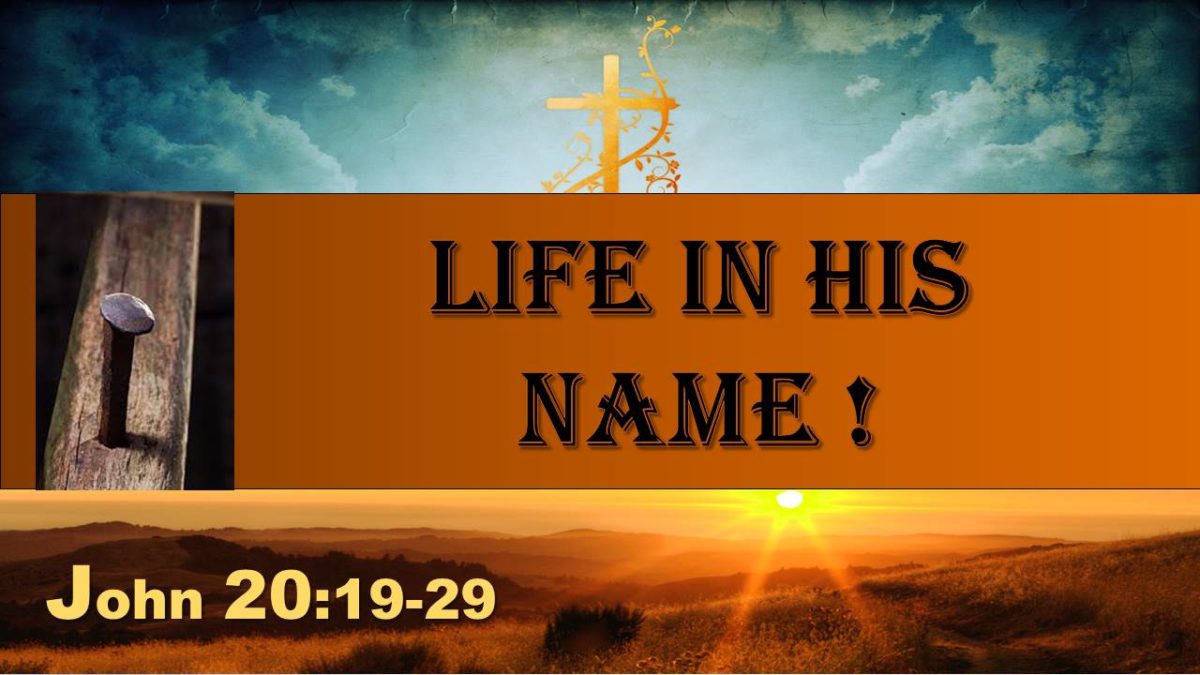This week, after a fine celebration of our risen Lord, we reconnect with Jesus and His disciples in Luke 6.
Jesus has just chosen 12 men to learn from Him. He’s healed and cast out demons to an extraordinary measure. And, if the 12 were anything like us, I have to believe they were impressed. But then Jesus gives His Sermon on the Plain, which begins, “Blessed are the poor …” And then He goes on to describe all kinds of hardship that will be theirs when the disciples follow Jesus.
The sermon contains clusters of images, commands, principles and illustrations—some of the most memorable in the New Testament, in fact. But we can map it generally by remembering that it contains ONE blessed life (:20-26), TWO blessed responses (:27-38) and THREE pictures of blessing (:39-49).
ONE Blessed Life (:20-26). Jesus begins by describing blessing that will include poverty, actual hunger, real weeping, and being hated. We don’t want to spiritualize these results of following Jesus, because those who experience them have an advantage. The poor, for one, have nobody else to depend on. They’re less likely to be distracted and depend on themselves.
What does Jesus say we’re to do in the day when we suffer like this for Him: Rejoice in that day and leap for joy, for behold, your reward is great in heaven (:23).
Jesus is just that much worth it! And the blessed life is a life of joy with sacrifice, but because of Jesus.
TWO Blessed Responses (:27-38). Then Jesus tells us how we’re to process hardship and persecution. Important to understand is that this is not about how to live in society in general. These responses are about how individual believers should live in light of Jesus’ coming while they experience persecution because of Jesus.
We’re to love enemies (:27-36). That’s the first response. This is radical, visible, principled and based on God’s mercy. Important is that we don’t operate in the tit-for-tat way everybody who doesn’t know Jesus expects us to act. We don’t use our wealth and resources to give everybody else what we think they have coming. And we don’t even “pay it forward” with other people, expecting to call in favors later. We do imitate the kindness and mercy of God who has forgiven us, even though we don’t deserve it. God Himself is our standard in giving and sharing.
And, we’re to look to our hearts (:37-38). Jesus is not saying we should refuse to seek justice. He is saying that we’re not to be consumed with the actions of those who hurt us. God’s estimate of our lives is based on our response, and our reward in eternity is not blessing in this life but the Father’s pleasure.
THREE Pictures of Blessing (:39-49). Jesus finishes His sermon with three parables that describe spiritual sight, spiritual words, and the spiritual life. These include the well-known pictures of the speck and the beam, the good and bad trees bearing good and bad fruit, and the house built on the rock.
Of the three, the house metaphor is the most developed. The life that endures until Jesus returns is the life built on Jesus. Notice that it’s not the builder that saves the house, but the foundation. In the same way, the person who looks beyond the immediate insult to see Jesus who is about to come back is the blessed one. Blessing starts now and in this life, it turns out, even while we’re leaning in and waiting for Jesus’ coming.
Have a look at these questions as we think carefully about how to apply this passage.
- How does Jesus’ sermon sit with you? What questions do you have still? Do you find the promise of sacrifice with blessing realistic or fanciful?
- Why is this sermon so difficult to apply? What keeps us from becoming doormats or totally abused people in this life when we’re trying to live out Jesus’ words?
- Is real joy possible when we’re sacrificing for Jesus? In what sense are we blessed now?
- What images do you find most powerful and helpful in Jesus’ sermon?
- Jesus’ disciples didn’t understand about Jesus’ cross right away. How do we miss our crosses and sometimes expect to go right to glory, in the same way we’ll later see the disciples expected to enter right into the glory of the Kingdom of God. (Think of how easy it must have seemed when Jesus was doing all the “work” in 6.17-19).

